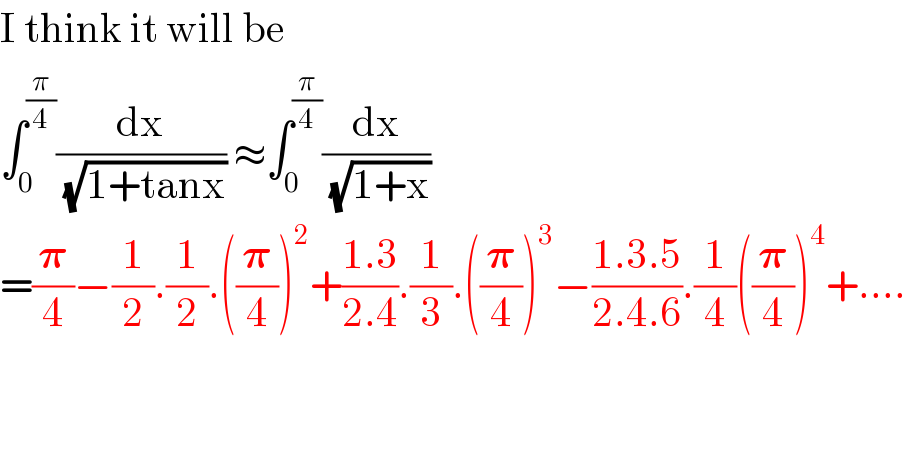
Question Number 86365 by Prithwish Sen 1 last updated on 28/Mar/20

$$\mathrm{I}\:\mathrm{think}\:\mathrm{it}\:\mathrm{will}\:\mathrm{be} \\ $$$$\int_{\mathrm{0}} ^{\frac{\pi}{\mathrm{4}}} \frac{\mathrm{dx}}{\sqrt{\mathrm{1}+\mathrm{tanx}}}\:\approx\int_{\mathrm{0}} ^{\frac{\pi}{\mathrm{4}}} \frac{\mathrm{dx}}{\sqrt{\mathrm{1}+\mathrm{x}}}\: \\ $$$$=\frac{\boldsymbol{\pi}}{\mathrm{4}}−\frac{\mathrm{1}}{\mathrm{2}}.\frac{\mathrm{1}}{\mathrm{2}}.\left(\frac{\boldsymbol{\pi}}{\mathrm{4}}\right)^{\mathrm{2}} +\frac{\mathrm{1}.\mathrm{3}}{\mathrm{2}.\mathrm{4}}.\frac{\mathrm{1}}{\mathrm{3}}.\left(\frac{\boldsymbol{\pi}}{\mathrm{4}}\right)^{\mathrm{3}} −\frac{\mathrm{1}.\mathrm{3}.\mathrm{5}}{\mathrm{2}.\mathrm{4}.\mathrm{6}}.\frac{\mathrm{1}}{\mathrm{4}}\left(\frac{\boldsymbol{\pi}}{\mathrm{4}}\right)^{\mathrm{4}} +.... \\ $$
